Quantifying Benefits of MMC

THE POTENTIAL benefits of offsite manufacture are widely acknowledged by the industry, however there has been minimal evidence-based research that quantifies these benefits in a consistent way beyond individual case studies.
Alongside other industry peers, AKERLOF have supported CIRIA (Construction Industry Research and Information Association) and the University of Cambridge, in their resource to develop a methodology for quantifying the benefits of offsite construction. Recently published, the Jansen Report reiterates the challenges in assessing project performance, beyond time and cost, in developing robust benchmarks. The research identifies gaps in data, compounded by even common performance metrics being measured differently across organisations.
Although the project began with an aspiration to quantify the benefits of offsite manufacture, the lack of good quality and high integrity data across a full range of projects precluded this – nonetheless, the resulting report may have more far-reaching value. Documenting the status quo, the research reaffirms the importance of establishing a common framework for measuring project outputs and outcomes. With innovation often a collaborative phenomenon, this work represents a key foundation to the Construction Leadership Council and Hub in developing a Procuring for Value toolset – designed to inform and support market change.
In the automotive industry, data has been regularly applied to shape policy, stimulate development of new innovative technologies and inform consumer choice. Between 1995 and 2015, for example, car thefts in Britain fell by more than 80%, as the publication of the Car Theft Index was applied by both Home Office (top-down) and manufacturers (bottom-up) as an area of focus. Removing opportunities for car theft, a ‘gateway crime’ to more serious offences, reduced crime rates across the board.
Egan (1998) New technologies often bring with them new forms of socioeconomic organisations; with technology, the economy and associated institutions coevolving as integrated systems. With a shifting focus towards broader value criteria, such a carbon net zero and ‘Levelling Up’ agenda, the economic and societal conditions are ripe for offsite solutions to follow this mould. The development of a value framework could accelerate this position.
The publication of the Jansen report coincides with research by the Advanced Industrialised Methods for the Construction of Home (AIMCH), targeted towards helping the housebuilding sector use data to demonstrate the value of modern methods of construction.
Evaluating the measurement landscape, both reports have illustrated the industry gap in collating data to inform value-based decision making. With the evidence base identifying the need for a consistent value framework – and with prevailing economic and social conditions – the Construction Innovation Hub’s ambitions to develop a new ‘Value Toolkit’ could be exceptionally well-timed.
The full report can be downloaded here: www.ciria.org/c792




